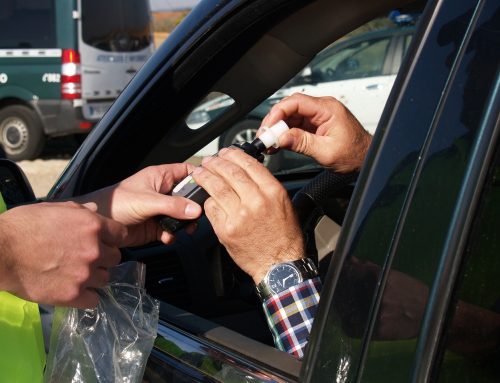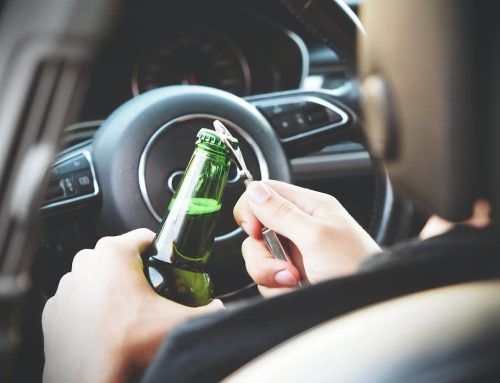Drugs or alcohol can impair a person’s ability to operate a vehicle, which endangers both the driver and anyone on the road, including pedestrians. In Canada, it continues to be the leading criminal cause of death and injury.
From fines to jail time to a licence suspension, there are many different sentences for driving offences, enough to make your head spin. This is why it’s important to not drink and drive. However, in some situations it is possible to be penalized unfairly. For example, a standardized field sobriety test may give the wrong results, depending on the situation.
Whether you or a loved one are facing criminal charges, a driving offence lawyer can answer all of your questions, including “Is impaired driving a provincial offence?”, and help you fight for your rights.
Are Impaired Driving Laws Federal or Provincial?
There exist both Federal and Provincial laws against impaired driving. These laws carry a variety of penalties that correspond to a number of different situations, which are outlined below.
What is Blood Alcohol Concentration (BAC)?
Blood alcohol concentration, also called BAC, refers to the amount of alcohol found in your bloodstream. Driving with a BAC of 80 mg (or more) of alcohol per 100 milliliters of blood is federally prohibited and is a criminal offence that can result in a criminal record.. British Columbia has provincial laws that also punish drivers for driving with alcohol in their system. If fact, these are even more stringent with a BAC 50 mg putting drivers over the limit in certain situations. You will find more on this below.
Criminal Penalties for Impaired Driving
These are the penalties for a first offence:
- Alcohol-impaired driving where the driver has a BAC of .08 or over within two hours of driving results in a $1,000 fine as a minimum penalty. Depending on where the driver’s BAC level falls, they may have to pay a higher fine of $1,500 or even $2,000.
- Drug-impaired driving where the driver has more than 5 nanograms (ng) of THC (or any other prohibited drug) per milliliter of blood in their system within two hours of driving means they face a $1,000 fine as a minimum penalty. This minimum penalty also applies if the driver has a combination of more than 2.5 ng of THC per ml and a BAC of .05.
- Refusing to provide a breath sample has a minimum penalty of a fine of $2,000.
A second offence carries the mandatory penalty of a minimum of 30 days in prison. A third offence carries the mandatory penalty of a minimum of 120 days in prison. Keep in mind that the maximum penalty for a first, second, and third offence is 10 years in prison.
Any criminal impaired driving also carries a minimum of a one-year driving suspension, which can be increased up to three years, or in rare cases for life.
Is Impaired Driving an Indictable Offence in Canada?
It can be. It’s treated as a hybrid offence, which means that the Crown decides whether or not the case warrants a summary conviction or an indictment. Individuals who are impaired with alcohol or drugs sometimes face multiple charges and penalties, so each case is different.
Additional Criminal Penalties
Impaired driving offences can include additional penalties when bodily harm or death are involved:
- Causing bodily harm can result in a summary conviction or an indictment. The summary conviction has a maximum of two years of imprisonment less a day. An indictment has a maximum of 14 years of imprisonment.
- Driving while impaired and causing death has a maximum sentence of life imprisonment.
Provincial Penalties
While federal laws put the limit at 80 mg for BAC, the province of BC has the lower limits. If the driver is part of the Graduated Licensing Program, for instance, and they have a Bac of up to 49 mg, they face a 12-hour driving prohibition.
If your BAC if over 50 mg but under 80 mg, you will likely receive an Immediate Roadside Prohibition (IRP) which carries the following penalties:
- First Offence: A three-day licence seizure and vehicle impoundment, a $200 administrative penalty, and an in-person licence reinstatement
- Second Offence within Five Years: A seven-day licence seizure and vehicle impoundment, a $300 administrative penalty, possible referral to the Responsible Driver Program
- Third Offence: A 30-day licence forfeiture and vehicle impoundment, a $400 administrative penalty, and a possible referral to the Ignition Interlock Program
If your BAC is over 80 mg, you could receive a 90-day IRP, an Administrative Driving Prohibition (ADP) or Criminal charges. Both the IRP and ADP cannot give you a criminal record, but they carry significant consequences. Make sure you understand exactly what you’re facing with more information here (hyperlink: https://surreycriminallawyer.com/irp-and-administrative-driving-prohibition/).
Ignition Interlock Device and Program
RoadSafetyBC is the government agency that oversees the safety of British Columbia’s roads. They have the power to order a driver, especially one that is considered high-risk, to participate in the Ignition Interlock Program.
How it works:
- An ignition interlock device is wired into the vehicles used by the driver.
- To start it, the driver must breath into the device for it to take a reading of the alcohol present. If there is alcohol present in the driver’s breath sample, it will record the violation.
- During operation, the device will periodically ask for breath samples from the driver. If there is alcohol present in the sample, it will make a recording, prompt the driver to pull over, and turn off the ignition. If the driver ignores the prompts, the device will sound an alarm until the ignition is turned off.
- Drivers must visit a service centre in order to have the data from the device downloaded
- Ignition interlock devices record attempts to tamper with them.
Can You Still be Charged for Impaired Driving if Your BAC is under 80 mg?
According to the Government of Canada’s New Alcohol-Impaired Driving Laws infographic, a police officer has the authority to stop your vehicle whether or not you have broken the law.
Police officers primarily do this to check that drivers have valid driving licences. But if they notice you are impaired and your blood alcohol concentration ends up being below 80 mg, you can still be charged by endangering yourself and those around you.
Whether this is your first offence or third, you may wonder if it’s worth getting a DUI lawyer. We encourage you to seek legal counsel because a lawyer can get the charges dropped or reduce the severity of the driving penalties, depending on the circumstances.
Is Impaired Driving a Criminal Offence in British Columbia?
Yes, it is. That’s why if you’ve been charged for impaired driving, you need to call Jaswal & Krueger.
Legal representation comes with many benefits, one of which is some peace of mind knowing that someone is in your corner. A lawyer can help you to understand the driving penalties you face and devise the best strategies to defend yourself.
Don’t take a chance, contact us today!















